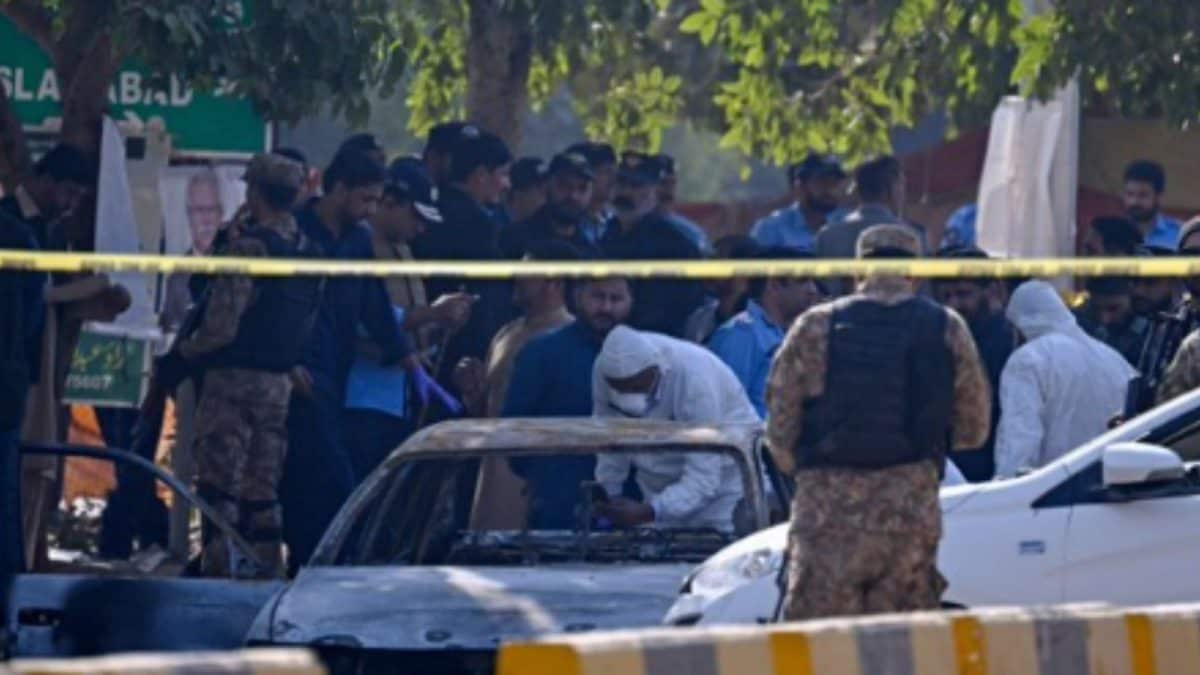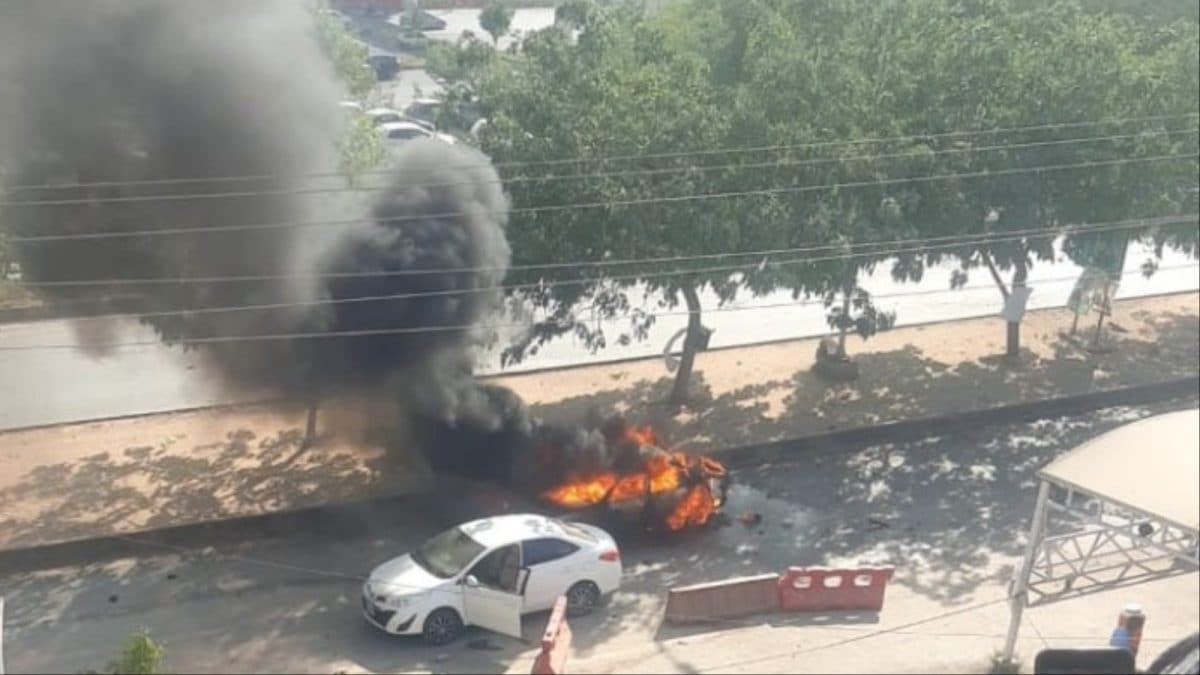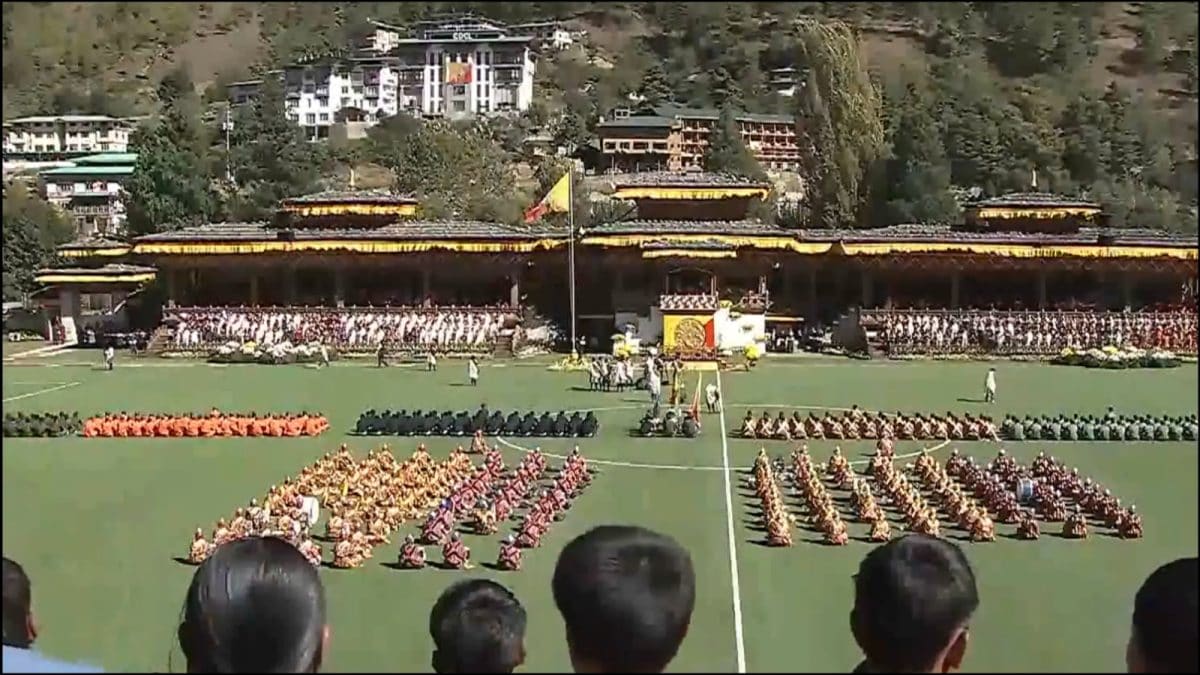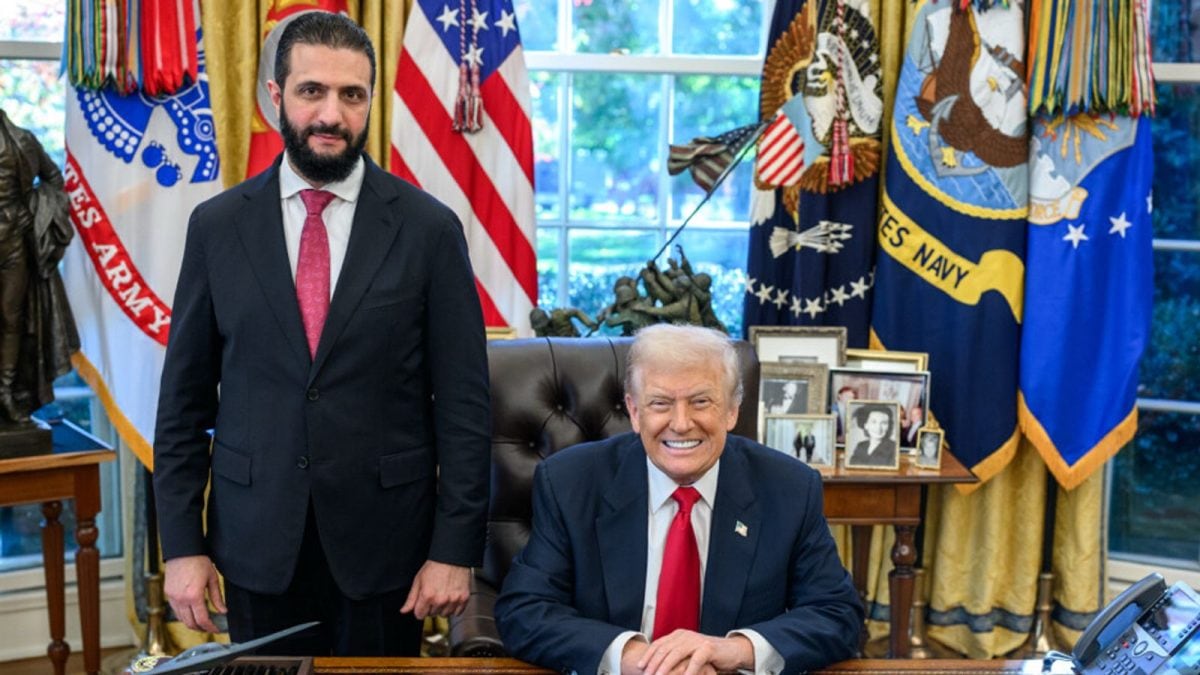Though Pakistan has seen coups and military dictators, the coup being staged by army chief Asim Munir is unprecedented. Through the 27th Constitutional Amendment, Munir is getting sweeping powers. The "constitutional coup" would dismantle Pakistan's remaining democratic safeguards and permanently alter its civil-military balance.

Field Marshal Asim Munir, aided by the puppet regime of Prime Minister Shehbaz Sharif (left), might accomplish what Generals Zia-ul-Haq and Pervez Musharraf could not. (Image: File)
In Pakistan, a fourth "coup" is seemingly underway. It's the quietest one, and unlike most coups—takeovers at midnight, or with guns. This time, it's "constitutional" with the help of a puppet regime. This soft coup would hollow out Pakistan further from within. The proposed 27th Constitutional Amendment, which was passed by the Senate on Monday, legalises military supremacy, placing the chain of command, nuclear authority, and even the judiciary under Field Marshal Asim Munir's control.
Munir's power grab is significant for New Delhi because it creates a dangerous asymmetry with India, where the civilian leadership has the operational control of the defence forces.
Pakistan has been scarred by three military coups since its formation, by Generals Ayub Khan (1958), Zia-ul-Haq (1977) and Pervez Musharraf (1999). But a fourth "coup", being staged by Asim Munir, might be the boldest consolidation of power by any military leader in Pakistan—something which both Zia and Musharraf couldn't pull off.
In this "constitutional coup d'etat", Munir has an accomplice aiding him in Pakistan's "reform"—Prime Minister Shehbaz Sharif.
The Constitutional Amendment seeks to restructure the military hierarchy under Munir and eliminate rival positions. It reportedly also grants five-star generals like himself immunity from all kinds of legal proceedings, according to Pakistani journalist Imran Riaz Khan, Kabul-based TOLO News reported.
A distinguished Pakistani lawyer, Makhdoom Ali Khan, writing for the Karachi-based daily Dawn, described the amendment as "a parallel authority insulated from the very rule of law it is sworn to defend".
WHY ASIM MUNIR'S SILENT COUP IS DANGEROUS?
While protests have taken place across Pakistan over the proposed amendments, the ruling establishment seems to be pliant.
The past coups in Pakistan were straightforward. General Zia ul Haq seized power in 1977 by toppling Zulfikar Ali Bhutto's civilian regime amid street protests, imposing martial law that lasted a decade and Islamised the judiciary.
General Pervez Musharraf followed suit in 1999, ousting Nawaz Sharif in a non-violent coup, only to face impeachment and exile in 2008.
The coups were justified by Haq and Musharraf as moves to fight corruption or restore stability in Pakistan, but they were eventually undone, and civilian rule returned.
Munir's gambit, however, is subtle, and much more dangerous. It uses the same parliamentary process that Musharraf and Zia once undermined, turning Shehbaz Sharif—whose party, the Pakistan Muslim League (Nawaz), has often had a tense relationship with the army—into an accomplice.
PAKISTAN ARMY WILL TAKE OVER PAKISTAN, LEGALLY
The bill, amending Article 243 of the Constitution, formalises the army's de facto dominance, shifting control from the president and cabinet to a new Chief of Defence Forces (CDF)—a role tailored for Munir. Notably, Munir was set to retire on November 28.
"This amendment appears tailored to benefit a specific individual rather than to strengthen the defence structure," said Lt Gen Asif Yasin Malik (Retd), a former defence secretary, reported the Dawn.
The changes would break the balance between Pakistan's military branches that has existed since the 1973 Constitution.
Article 243 currently vests supreme command in the President, with operational control under the federal government.
The amendment scraps this, creating the CDF as the paramount authority over the army, navy, and air force. The amendment also coincides with the November 27 retirement of the current Chairman Joint Chiefs of Staff Committee (CJCSC), General Sahir Shamshad Mirza, dissolving that post entirely.
Supporters, including government insiders, tout it as modernisation born of the beating Pakistan took during Operation Sindoor. Pakistani Defence Minister Khawaja Asif confirmed to Geo News that "defence requirements have evolved", emphasising "mutual consultation" between the government and the Pakistani military.
THE MOVE MIGHT CREATE A RIFT IN PAKISTAN MILITARY
Critics are decrying the move as institutional capture. The move, experts said, elevates the army's land-centric ethos over the navy's maritime domain and the air force's rapid-response doctrine.
The CDF would oversee transfers, postings, and promotions across all branches, a prospect that alarms service chiefs. "By placing an army officer as the Chief of Defence Forces with authority over the Air Force and Navy, the proposed system invites institutional imbalance and potential disaster," Lt Gen Malik said, according to Dawn.
Speaking to Dawn, former human rights minister Shireen Mazari also flagged unresolved ambiguities that the amendment will bring. "With the end of the CJCSC position, would the joint chiefs of staff committee also be dissolved?" she asked, warning that army-led promotions could breed "festering resentments and affect morale in the long run".
"What if there is a Marshal of the Air Force or Admiral of the Fleet while the COAS is a four-star general—will they then be under a four-star army officer if the latter is the CDF?" Mazari hypothesised.
NUCLEAR PROVISIONS WOULD AMPLIFY MUNIR'S POWER
The amendment establishes a Commander of the Strategic Command, overseeing Pakistan's atomic arsenal, appointed by the prime minister on the army chief's recommendation, and restricted to army officers.
"Effectively, all nuclear weapons and delivery systems will be under the army's control, including second-strike missiles which normally fall under naval command," Mazari noted. "This could lead to command-and-control problems and time delays, especially in a war-like situation," she was quoted as saying in Dawn.
Lt General Malik (Retd) talked about the 2019 Balakot airstrikes by India, where the Pakistani air chief and CJCSC reportedly overruled then-COAS General Qamar Bajwa's call for restraint.
"Under the proposed arrangement, would such dissent... even be possible?" asked the former army commander.
LIFELONG PROTECTION FOR ASIM MUNIR, FIVE-STAR GENERALS
The title of Field Marshal, till now just an honorific for Asim Munir, gets a recognised constitutional position with the amendment of Article 243 of the Constitution, according to Jurist.org.
Most appalling in the proposed amendment are the clauses granting lifelong constitutional protections to five-star ranks—field marshal, marshal of the air force, or admiral of the fleet.
These officers would "retain rank, privileges and remain in uniform for life". They would be removable only via impeachment akin to Article 47, with immunities mirroring the president's under Article 248, according to Dawn.
Pakistani journalist Imran Riaz Khan said, "Throughout his lifetime, no legal case can be filed against him (Munir); you cannot lodge any complaint. Meaning, Asim Munir can do whatever he wants during his life, even if he kills someone, commits rape, engages in oppression, or commits any other crime, the laws of Pakistan will never be able to take action against him, as he has been granted lifetime immunity", reported TOLO News.
PAKISTAN'S JUDICIARY ALSO UNDER MUNIR'S ATTACK
The amendment also captures the judiciary in the military's web. The Dawn commentary by Makhdoom Ali Khan dubbed an "obituary" for the Supreme Court and high courts as independent bulwarks.
The amendment transfers constitutional benches' case assignments from chief justices to the Judicial Commission of Pakistan (JCP), where judges hold a minority.
The state, now more powerful, can influence outcomes by assigning cases based on judges' known preferences, while the threat of transfer hangs over them.
Presidents gain unchecked power to shuffle high court judges across provinces. Even SC justices face purges via forced elevation to a new Federal Constitutional Court (FCC), where refusal means deemed retirement, according to the comment in Dawn.
The FCC also takes over the Supreme Court's key powers: handling constitutional appeals, disputes between provinces, protecting basic rights, and advising the president.
The Supreme Court would essentially shrink to a "Supreme District and Sessions Court", handling mere civil and criminal appeals, said the lawyer in the Dawn commentary.
With the military now exerting legal control over nearly all of Pakistan’s institutions, from the armed forces and nuclear command to the judiciary, Munir has achieved what Zia-ul-Haq may have envisioned, and what Pervez Musharraf failed to accomplish.
- Ends
Published By:
Anand Singh
Published On:
Nov 11, 2025

 8 hours ago
8 hours ago

















